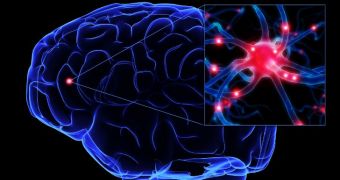Here is one piece of news that might change the way people think about their teeth and make them be a tad gentler when brushing time comes: scientists claim that it may one day be possible to use teeth to grow brain cells.
In a recent paper in the journal Stem Cell Research and Therapy, researchers with the University of Adelaide in Australia describe the use of stem cells originating from teeth to grow brain-like cells.
Furthermore, the scientists argue that it might be only a matter of time until advances in technology and research make it possible to take things one step further and create actual neurons from stem cells originating from teeth.
Science News informs that, as part of this research project, scientists collected stem cells from teeth and then placed them in an environment mimicking the conditions present in a normal human brain.
When faced with these conditions, the stem cells forgot that they were supposed to become teeth cells and in turn moved to become cells closely resembling neurons, the same source details.
“We can do this by providing an environment for the cells that is as close to a normal brain environment as possible, so that instead of becoming cells from teeth they become brain cells,” Dr. Kylie Ellis said in a statement.
“What we developed wasn't identical to normal neurons, but the new cells shared very similar properties to neurons. They also formed complex networks and communicated through simple electrical activity, like you might see between cells in the developing brain,” the researcher added.
Dr. Kylie Ellis and fellow researchers believe that, should they one day succeed in growing actual neurons from stem cells taken from teeth, this breakthrough would make a world of a difference when it comes to treating stroke patients.
More precisely, the scientists imagine using such laboratory-grown brain cells to treat patients for months, maybe even years, after they had suffered a stroke, and help improve on their quality of life.
“Ultimately, we want to be able to use a patient's own stem cells for tailor-made brain therapy that doesn't have the host rejection issues commonly associated with cell-based therapies,” Dr. Kylie Ellis explained.
“Another advantage is that dental pulp stem cell therapy may provide a treatment option available months or even years after the stroke has occurred,” the scientist went on to say.
All things considered, it could happen that at some point in the future neurons grown from stem cells originating from teeth could help researchers better understand and develop new treatment options for various brain disorders.

 14 DAY TRIAL //
14 DAY TRIAL //